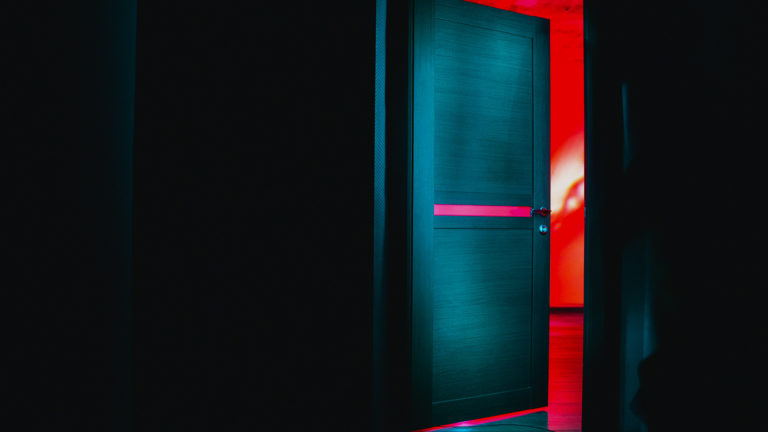Nostalgia is a powerful tool to nurture and re-establish a sense of stability in a time which has uprooted and destabilized people’s lives.
We associate our daily lives with routine and schedule to the extent that these very things even start becoming monotonous. However, along with being monotonous, these routines provide us with an important sense of stability. Having a day planned out; from going to work, to having a fixed, scheduled gym session, to weekend plans blocked in our calendars…all give us a sense of control and help us feel stable in our lives.
Being hit by a pandemic and realizing that all of sudden, our routines, schedules, and lives are being uprooted, we’re suddenly forced to rethink our lives and ask questions like…“When should I schedule work?” “How do I fit in working out in this new schedule?” “What is the purpose of doing anything?” “Are the boundaries between all parts of my life blurring?” “What should I do to feel anchored and safe?” etc.
A sudden change in the way we’ve “known” how to live our lives has resulted in people feeling highly confused and flustered. An unprecedented lockdown and the fear of uncertain times ahead has left us in a state of flux. In addition to that, the absence of routine leaves us longing for stability and something to ground ourselves and our lives in. Thus, the role of stability is heightened during these times – we look for ways to maintain self-continuity and identity as we are struggling to perform activities that were contributing to a strong sense of self–fitness, connections outside the home, work, etc.
Nostalgia as a Coping Mechanism and Promoting a Sense of Stability in Difficult Times
Nostalgia serves as a crucial existential function and helps us use positive perceptions about the past to reinforce a sense of meaning and continuity/stability in our identity and life. Today, we find ourselves doing exactly that – using nostalgia to counter this disruption and re-establish self-continuity and stability. Our past memories that are strongly intertwined with our sense of self can be maintained and act as a stabilizing force in a time of uncertainty and disruption.
Organically, we find ourselves leaning on Nostalgia to “feel good” and anchored. What’s interesting is that we are doing this through two types of Nostalgia:
Good Old Nostalgia – Grounded in Warmth and Bathing in Old Memories
Good old nostalgia has always been a part of our lives. We have nostalgic pangs on and off during the course of our lives, and we bury ourselves in the comfort of these memories.
We find ourselves recollecting moments that evoke emotions of the past without any intention of recreating those moments.
People hold onto past memories in the form of physical manifestations and often go through old photos, music, books, TV shows, food choices, etc., to feel good and remember times associated with these things
- Consuming things that trigger comforting childhood memory to relieve stress (food, activities, etc)
- Research conducted by Cewe found that looking back at old photos makes 56% of us feel happy, with 30% reporting that it made them feel more relaxed

Newstalgia That Seeks to Recreate and Relive Recent past Memories
Newstalgia addresses people reminiscing about recent past events which are still in sight when we look behind…and we know we will have those moments again in the future, we’re just not sure when.
This type of nostalgia reinforces hopefulness towards the future as it prompts us to remember experiences that we value and ones that can be relived and recreated in the future, e.g. dining experiences, meeting loved ones, hanging out at work, spending time at museums, etc.
However, for now, we find ourselves recreating and reliving these memories in the present as well, to be able to gain a sense of normalcy and stability.
- People are recreating these “newstalgic” moments by creating restaurant and flight experiences at home, virtual game and drink nights, and recreating old photos as TikTok challenges
- Virtual parties and hangouts with friends have spiked and apps like House Party have seen as high as 50 million sign-ups in a month of lockdown, a figure that’s around 70 times above normal in some markets.
View this post on Instagram
Fawlty towers dinner party for the kids in lockdown… #coronavirus #lockdown #uk #milk
So What Can Brands Do to Help?
The need for stability has always presented itself in our lives and is evergreen, but in times when people are restricted in living their lives as they did earlier, this need is amplified. Some people are still under lockdown in the midst of a pandemic, while many others are lifting the lockdown, but the lack of stability remains amplified more than ever. People are hesitant to re-enter a world they’ve never experienced before and one that they cannot wrap their heads around just yet.
In times like these, brands can help by addressing people’s desire for stability and using nostalgia to help them regain this sense of stability as a potent way in. With people turning to nostalgia to “feel good” and re-establish stability, brands have an opportunity to affiliate themselves with these positive associations. Some ways in which brands can do this are by capitalizing on:
Good old nostalgia: by bringing back old and childhood memories
- Multisensorial nostalgia – re-introduce the old to cue memories (flavors, scents, TV shows, music, foods, etc.)
- Communication comfort – use nostalgia as part of communication strategies to cue comfort and stability and help people associate closely with the brand
Newstalgia: by helping them recreate recent past experiences
- DIY kits – give them what they need to recreate the experiences with ease, e.g. meal prep kits, cocktail kits with recipes, pre-planned party kits
- Virtual living – recreate and reinvent virtually to stay relevant, e.g. setting filters, virtual games and hangout apps, virtual and interactive concerts and meetups
1. https://www.nytimes.com/2020/04/07/business/coronavirus-processed-foods.html
2. https://metro.co.uk/2020/04/17/posting-throwback-photos-helping-us-cope-lockdown-12570558/?ito=cbshare
3. https://www.theatlantic.com/health/archive/2020/04/nostalgia-before-coronavirus-missing-the-recent-past/609196
4. https://www.psychologytoday.com/us/blog/time-travelling-apollo/202004/using-nostalgia-cope-covid
5. https://www.jstor.org/stable/symbinte.38.4.478?seq=1
6. https://www.mynation.com/india-news/it-s-nostalgia-as-doordarshan-reruns-epics`-ramayana-mahabbharata-amid-coronavirus-lockdown-q7w6el
7. https://techcrunch.com/2020/04/15/houseparty-reports-50m-sign-ups-in-past-month-amid-covid-19-lockdowns/


